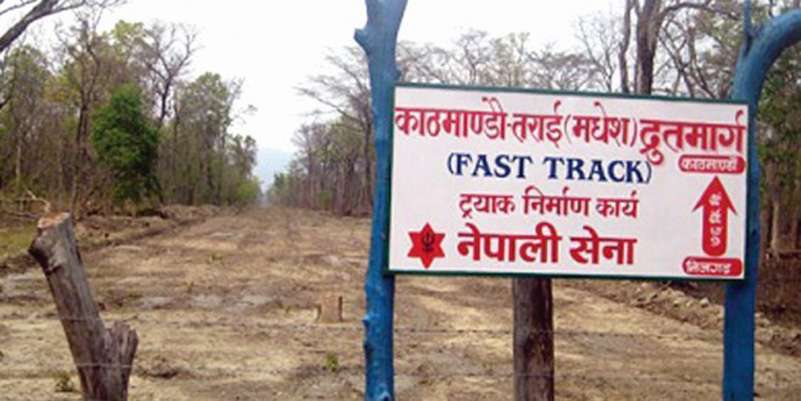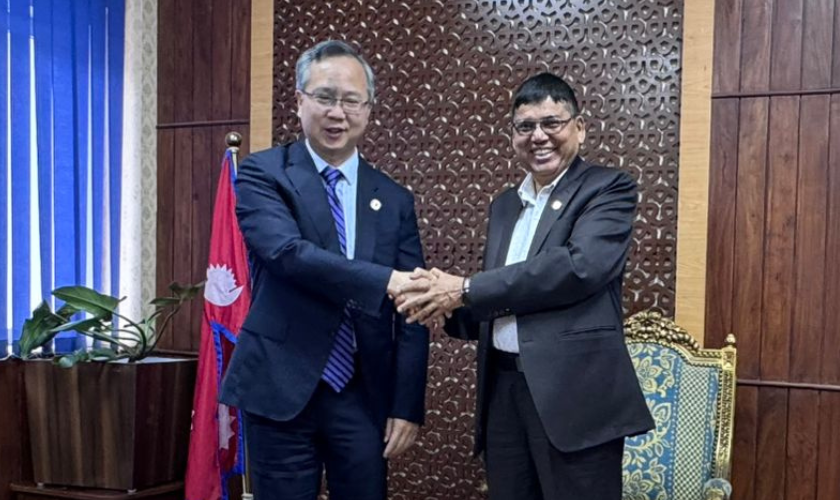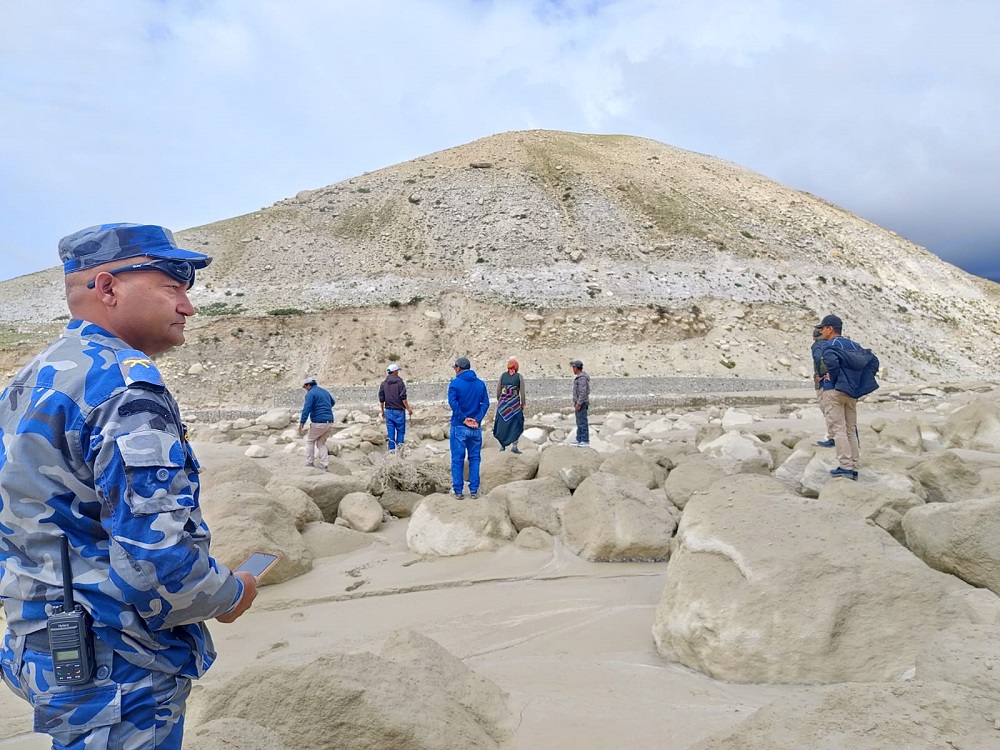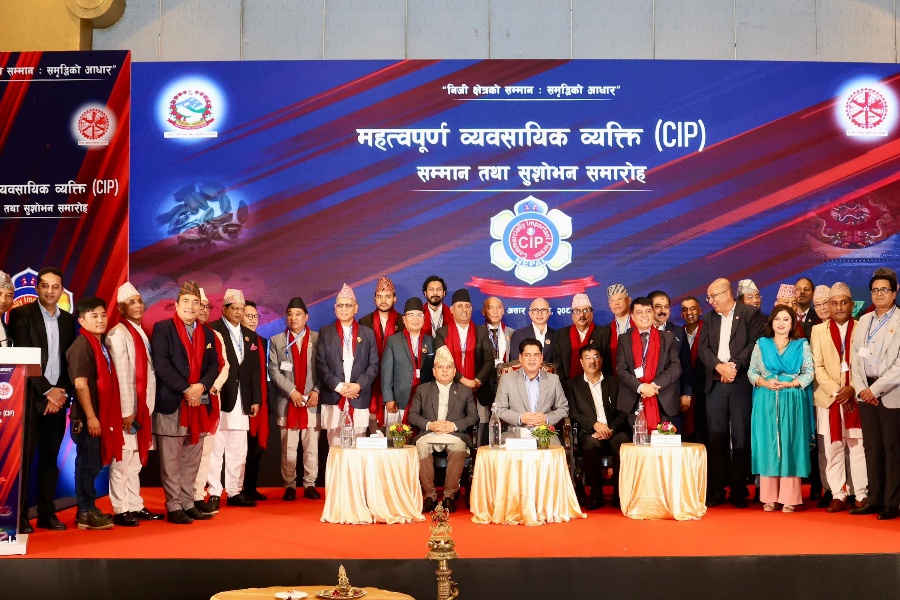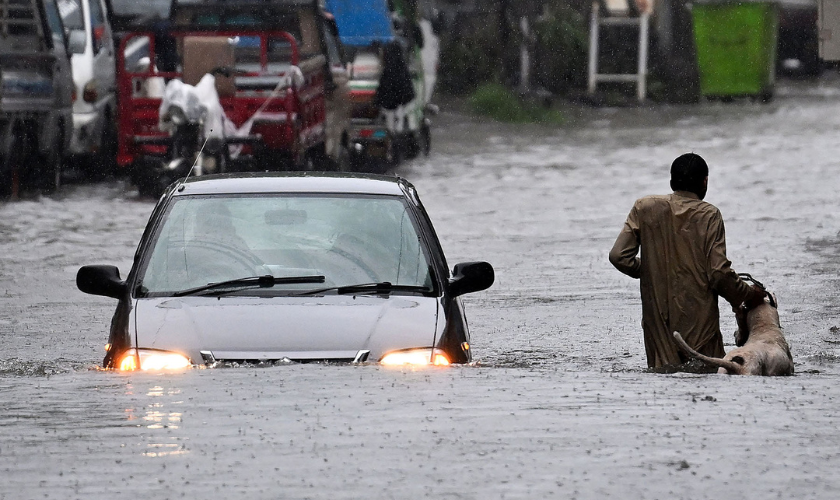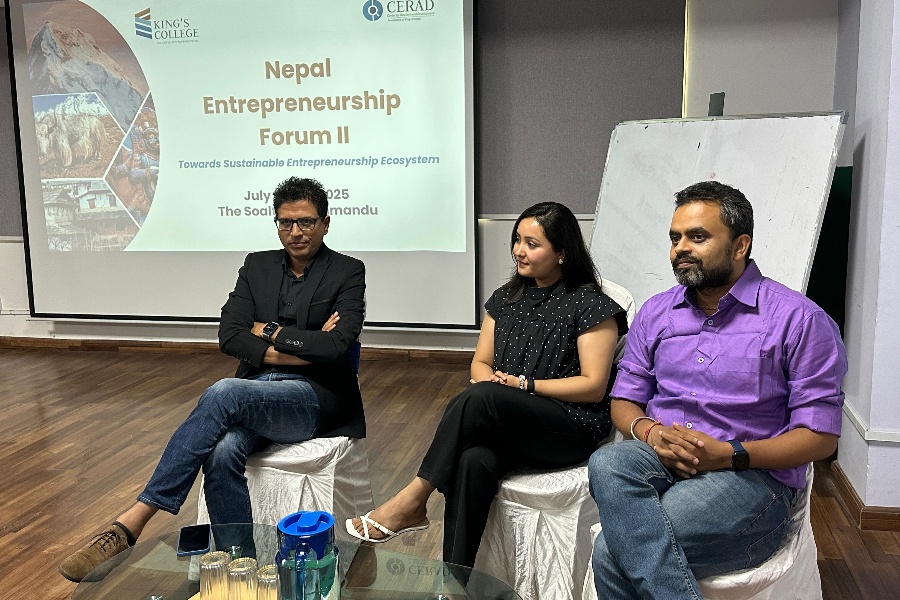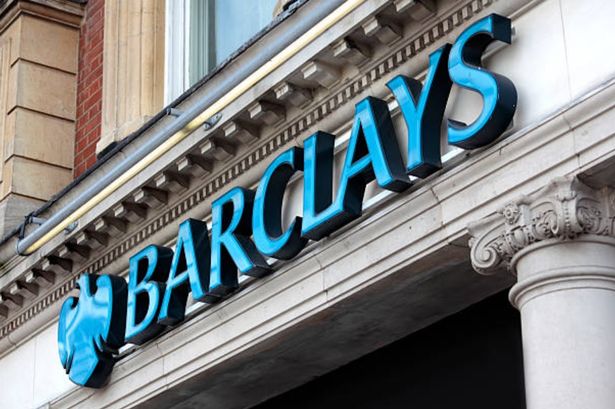The Kathmandu-Tarai/Madhes Fast Track Project, one of Nepal's national pride projects, has achieved 41.37 percent physical progress and 42.74 percent financial progress as of mid-July, according to the Ministry of Defense.
The physical progress has increased at a snail’s pace to 41.37 percent from 39.34 percent in late May, casting doubts over the project's timely completion.
The project, which began in Fiscal Year 2016/17, was handed over to the Nepali Army in April–May 2017 for construction management. It was originally scheduled for completion within four years, but the timeline has been extended multiple times. The Cabinet most recently extended the deadline in April 2023, giving the Army until mid-April 2027. With just 1 year and 9 months remaining and around 60 percent of the work still pending, doubts persist regarding timely completion.
Read: Kathmandu-Terai Expressway Lags Behind Schedule with Just 39% Work Completed
Of the seven tunnels planned under the project, breakthroughs have already been achieved on the Dhedre and Len Danda tunnels under Package-2, which are located in Makawanpur's Bakaiya and Gadhi rural municipalities, respectively. Remaining tunnel works are currently in various phases of construction.
Out of a total of 89 bridges planned along the 72.5-kilometre route, procurement contracts have been signed for 85. Till date, five bridges have been completed.
However, the project continues to face a critical challenge in Khokana—the designated starting point of the expressway—where land acquisition disputes remain unresolved. Despite the formation of a committee under the Defense Minister to resolve the issue, no construction contracts have been awarded in the area due to local resistance. Army officials have warned that continued delays in Khokana could further impact the overall project timeline.
As of the end of Fiscal Year 2023/24, a total of Rs 67.10 billion has been spent on the project, including Rs 58.32 billion on construction and Rs 2.87 billion on consultancy services. The Auditor General's report has cautioned that any further delays will escalate costs, particularly for time-based consultancy contracts.
Read: Khokana Dispute Clouds Future of Kathmandu-Terai Expressway
Amidst this backdrop, newly promoted Brigadier General Dharmendra Kumar Jha has officially taken charge as the project chief. Chief of Army Staff (CoAS) General Ashokraj Sigdel conferred the rank insignia of Brigadier General to Jha during a ceremony held at Army Headquarters on Thursday, the state-run news agency RSS reported. Although the government approved his promotion on July 14, Jha had been leading the project in an acting capacity since March 25.
According to RSS, Brig Gen Jha brings significant experience to the role, having previously led major road infrastructure projects such as the Katari–Okhaldhunga, Beni–Jomsom, and Musikot–Burtibang corridors.

